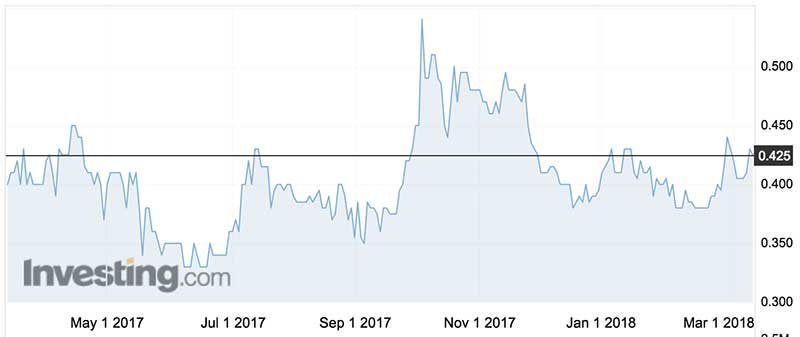Kalium leads the charge in a new Aussie potash industry
Mining
Mining
Australia’s burgeoning sulphate of potash (SOP) industry is attracting strong investor interest amid a “feed-the-world” thematic, writes Barry FitzGerald in his Garimpeiro column.
The salt lakes of outback Western Australia are giving rise to a new Australian industry – the production of the high-value fertiliser, sulphate of potash (SOP).
The new industry is expected to result in both import replacement – Australia produced its last SOP in the 1950s – and the development of a new export industry.
A handful of ASX-listed juniors are involved in the SOP projects where salt lake brines are to be tapped for the valuable fertiliser, and they are attracting strong investor interest on the back of the need-to-feed-the-world thematic.
The thematic is a lasting one.
Global population growth and an increasing shortage of arable land means fertilisers are required in increasing amounts to improve crop yields.
SOP is the second major form of potash and is the fertiliser of choice in the high-value cultivation of fruit, vegetables, berries, potatoes, beans, cocoa and tobacco because it does not contain chloride.
SOP is a 7 million tonne annual market compared with the 60mt muriate of potash (MOP) market.
But because of its use in high-value cultivation, it trades at a premium to MOP. The premium stands at $US300 a tonne at the current SOP price of $US525 a tonne.
ASX-listed Kalium Lakes (ASX:KLL) expects to be one of the first in to production from its Beyondie project, 160km south of Newman.
Since floating on the ASX in December 2016 in a $6 million raising, Kalium (it’s German for potassium) has grown to a $70 million market cap at its last sale price of 42.5c.
Macquarie, which was lead manager in a capital raising by Kalium last year, thinks the stock has further to go. Its research desk has just initiated coverage of the stock and has set a 12-month price target of 60c, some 41 per cent higher than the current market price.

“Boasting the highest grade resource among its peers, and a favourable infrastructure corridor, we believe Kalium is well-positioned to bring its Beyondie project in to production within two years, giving the company an important early mover advantage in to the Australian SOP market,’’ Macquarie said.
It reckons first production from the 75,000 tonne-a-year first stage (that about matches Australia’s current SOP import needs) could occur in late 2019, with the ultimate planned production rate of 150,000tpa achievable five years later.
A pre-feasibility study released by Kalium in October pointed to a pre-production capital cost for the starter project of 75,000tpa of $124 million.
Macquarie goes a step further in its research note to suggest a pre-production capital cost for stage one of $130 million, with the stage two expansion to 150ktpa expected to cost an additional $100 million.
It expects all-in sustaining costs to average a robust $US250/t in stage one, falling to $US225/t for stage two – less than half the current spot price for SOP of $US525 a tonne.
“Securing off-take [future sales] partners and funding remain key risks to both the timing of the development and our valuation,’’ Macquarie said.
At last count the company was holding $15 million in cash. It’s assumed a $70 million equity raising and $90 million in debt financing is needed to get Beyondie in to production by late 2019.
Cheering Kalium on is its 33 per cent shareholder and founder, Pilbara chopper pilot and cattle station owner Brent Smoothy.
The former Queenslander’s helicopter charter business in Newman often found work with potash explorers in the region, making Smoothy wonder if salt lakes on his cattle stations were also prospective for potash.
After two years in private hands, and then the 2016 float, the result is Beyondie’s push towards production.